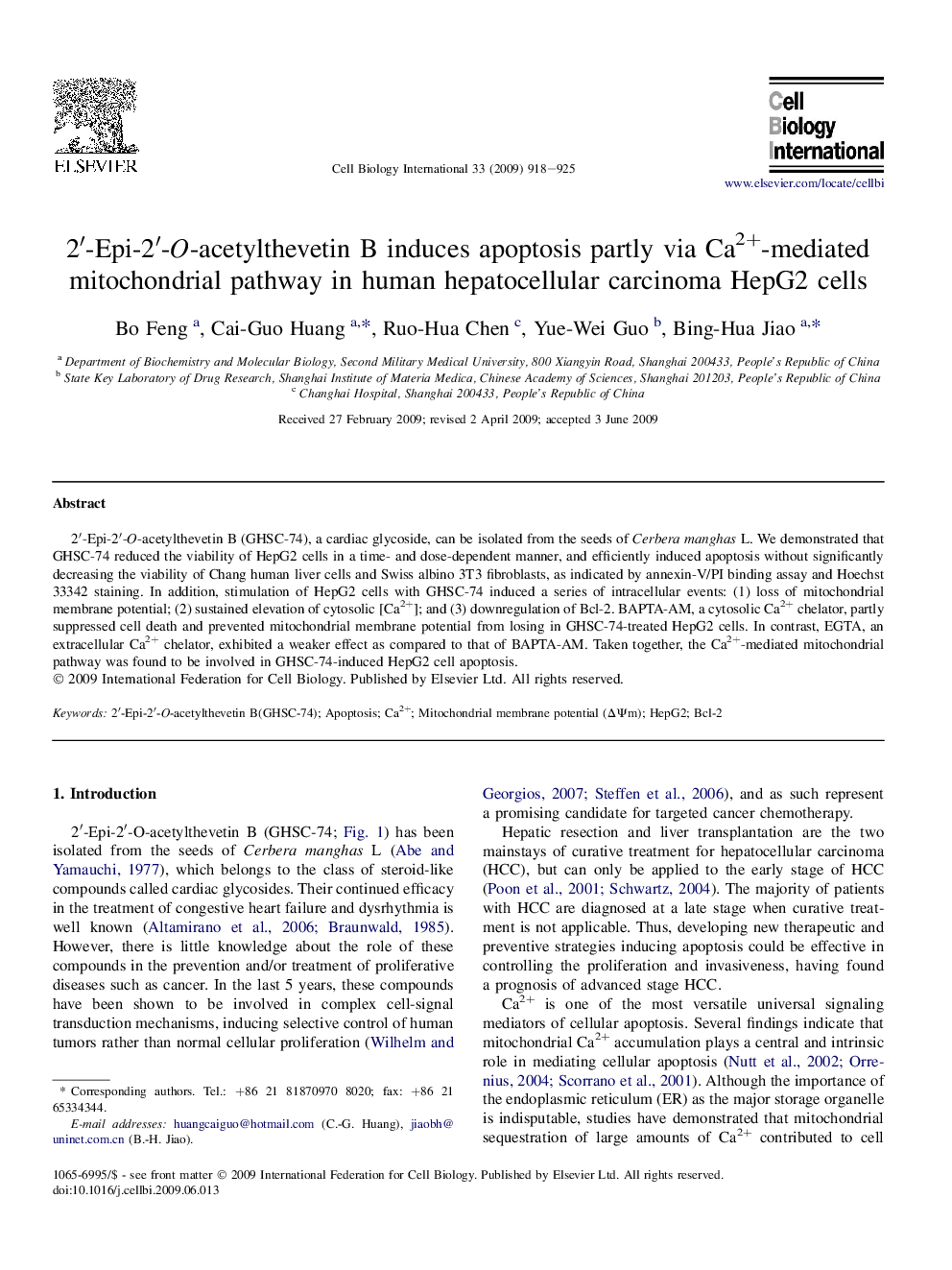| Article ID | Journal | Published Year | Pages | File Type |
|---|---|---|---|---|
| 2067036 | Cell Biology International | 2009 | 8 Pages |
Abstract
2â²-Epi-2â²-O-acetylthevetin B (GHSC-74), a cardiac glycoside, can be isolated from the seeds of Cerbera manghas L. We demonstrated that GHSC-74 reduced the viability of HepG2 cells in a time- and dose-dependent manner, and efficiently induced apoptosis without significantly decreasing the viability of Chang human liver cells and Swiss albino 3T3 fibroblasts, as indicated by annexin-V/PI binding assay and Hoechst 33342 staining. In addition, stimulation of HepG2 cells with GHSC-74 induced a series of intracellular events: (1) loss of mitochondrial membrane potential; (2) sustained elevation of cytosolic [Ca2+]; and (3) downregulation of Bcl-2. BAPTA-AM, a cytosolic Ca2+ chelator, partly suppressed cell death and prevented mitochondrial membrane potential from losing in GHSC-74-treated HepG2 cells. In contrast, EGTA, an extracellular Ca2+ chelator, exhibited a weaker effect as compared to that of BAPTA-AM. Taken together, the Ca2+-mediated mitochondrial pathway was found to be involved in GHSC-74-induced HepG2 cell apoptosis.
Related Topics
Life Sciences
Biochemistry, Genetics and Molecular Biology
Biophysics
Authors
Bo Feng, Cai-Guo Huang, Ruo-Hua Chen, Yue-Wei Guo, Bing-Hua Jiao,
